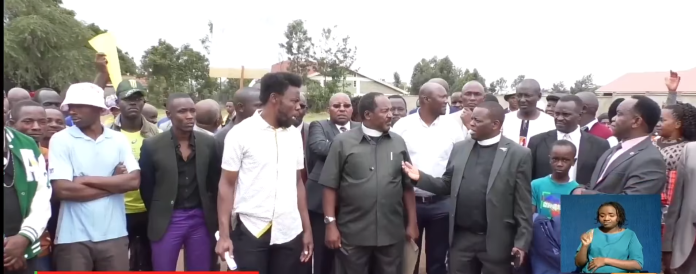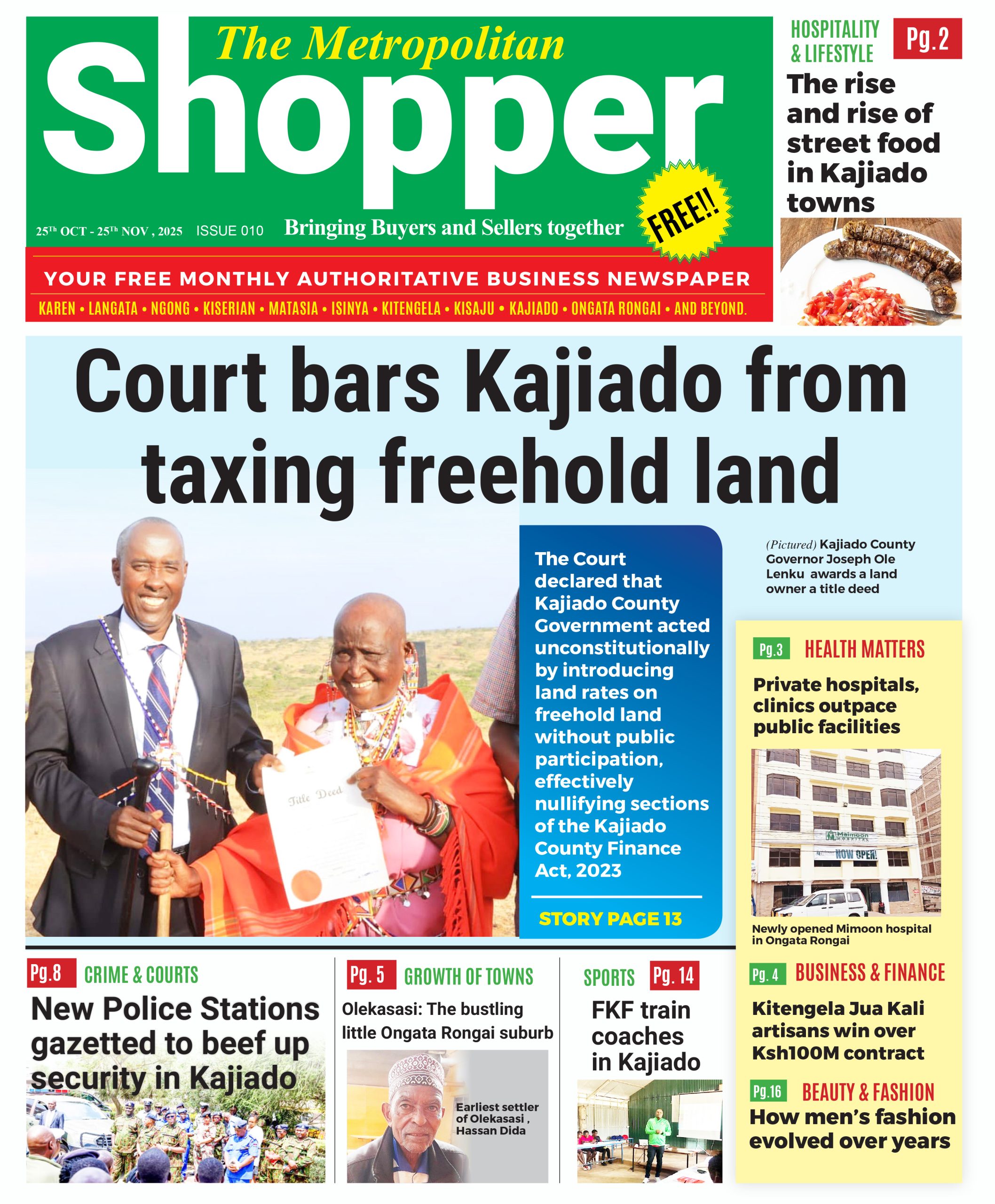By Obegi Malack
A fresh row has erupted in Ongata Rongai after the Presbyterian Church of East Africa (PCEA) opposed the government’s plan to put up affordable housing units on a 152-acre parcel of land in Nkaimurunya Ward, Kajiado County. The church claims it is the rightful owner of the contested land, despite a court ruling that declared the property belongs to the County Government of Kajiado.
The National Government, through the Affordable Housing Programme, had earmarked part ofthe land for new housing units. But the church has rejected the plan, arguing that it was not consulted and that the land is the subject of an active appeal case. Through the Presbyterian Foundation, PCEA insists it has been the registered owner of the land known as Ngong/Ngong/528 since 1999. The church says the land was allocated to it by the then
County Council before independence in 1963 and that it formally obtained a title deed in 1999
after fulfilling registration requirements.
The church further argues that it has developed community institutions on the land, including
PCEA Nakeel Secondary School, Ongata Rongai Primary, Nkaimurunya Secondary, Nakeel
Primary, Oloolaiser Water Company, Ongata Rongai Health Centre, Matumaini Children’s
Home, Administrative offices including District Officer’s and Chief’s office, and recreational
centre/locals stadium. It also set up a chapel in 2002 serving students from nearby schools.
“The church has a master plan for development of the suit land but the local chief together with
some community activists calling themselves ‘Orendo’ have been trying to obstruct the church,”
the church stated in its submission.
However, in a ruling delivered on September 26, 2024, Justice Maxwell Gicheru dismissed the
church’s ownership claim. He ordered that all entries showing the Presbyterian Foundation as
proprietor be cancelled and the land register amended to reflect the County Government of
Kajiado as the legal owner.
The court found that the land was originally reserved for public use during the 1960s
adjudication process and was formally registered under the Olkejuado County Council on
11/1/1966. Justice Gicheru ruled that the church’s registration on 15/12/1999 was fraudulent,
citing several irregularities. He noted that the land was already occupied by schools, a health
centre, and a children’s home by the time the church obtained its title. He further pointed out a
letter dated 19/6/1979 from the clerk of the Olkejuado County Council which clearly stated that
the land had been set aside for educational purposes, not church activities.
The judge also found that no County Council resolution was ever passed to authorize the transfer
of the land to the church, and that crucial requirements under Section three of the Law of
Contract Act and the Land Control Act were ignored. He observed that there was no valid sale
agreement, no consent from the Land Control Board, and no lawful transfer by an authorized
officer of the County Council. The Attorney General, representing one of the defendants,
supported the revocation of the church’s title.
In his ruling, Justice Gicheru emphasized that the community institutions on the land had a
proprietary interest superior to the church’s title, even if that interest was not recorded in the land
register.
“When the plaintiff was registered as the owner of the suit land, the schools, the water supply,
the health centre, the stadium, the children’s home, the chief’s office and the other social
amenities were already in place,” part of the ruling read.
Ongata Rongai Primary School alone occupies 30 acres, while Nakeel Secondary covers about
40 acres and Nakeel Primary 14 acres. Nkaimurunya Secondary sits on 20 acres, Ongata Rongai
Health Centre on 12 acres, and Matumaini Save the Children Centre on another 12 acres. The
Oloolaiser Water Supply, which provides water to thousands of residents, spreads over 12 acres,
while the chief’s and DO’s offices cover 5 acres. The Ongata Rongai playground and local
stadium take up 12.5 acres, having served the community since the 1960s. Smaller institutions
such as Ongata Rongai Nursery School, established in 1964, occupy 4 acres, while the PCEA
School Chapel, built in 2002, sits on just half an acre.
Despite the ruling, the PCEA has vowed not to back down, insisting that the matter is far from
over. The church says an appeal is active in court under Environment and Land Case 239 & 20
of 2017, the case is between the PCEA church under The Presbyterian Foundation (Plaintiff) vs
Jacob Wang’ola (1st Defendant), Development Organization (2nd defendant), Kennedy Gitau
(3rd defendant) and County Government of Kajiado (Respondent). It has warned that the
government should not proceed with the housing project until the appeal is fully determined.
The government, however, maintains that the land is public property and has already called for
public participation on the planned project. With both sides holding firm, the dispute now sets
the stage for yet another drawn-out legal and political battle in Ongata Rongai, a region where
land ownership disputes have long been a source of controversy and tension.




